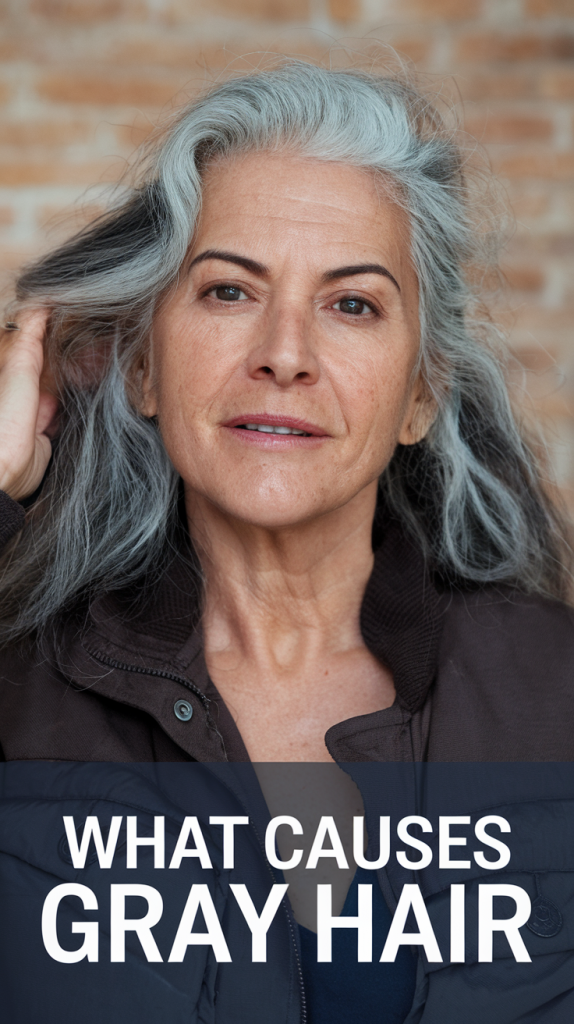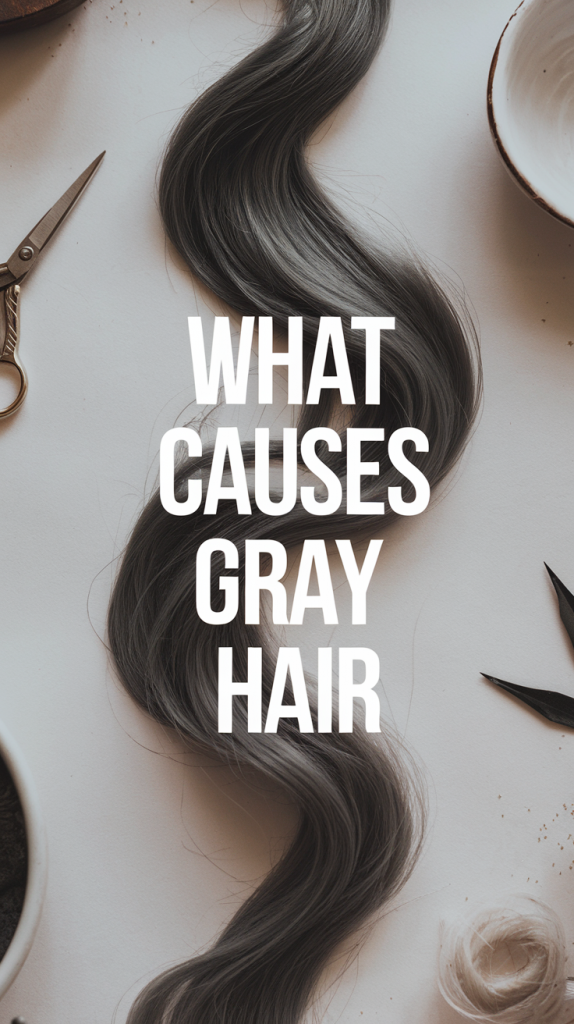What Causes Gray Hair?
Gray hair has always been a topic of fascination and concern. Whether you notice a few silver strands in your 20s or embrace a head full of white later in life, understanding the reasons behind this change is key to managing or even embracing it. On this journey, let’s explore why hair turns gray and what factors influence this process.
The Science Behind Hair Pigmentation

Hair color is determined by melanin, a pigment produced by melanocytes in hair follicles. There are two types of melanin:
- Eumelanin: Responsible for black and brown tones.
- Pheomelanin: Creates yellow and red tones.
The combination of these pigments results in a wide spectrum of hair colors. Over time, melanocyte activity decreases, reducing melanin production. When pigment is no longer present, hair grows in as gray or white.
Key Facts About Hair Pigmentation:
| Pigment Type | Role | Color Contribution |
|---|---|---|
| Eumelanin | Dominant in dark hair | Black, brown shades |
| Pheomelanin | Present in lighter and red tones | Yellow, orange, red hues |
| Melanocyte Decline | Reduction with age | Results in gray or white hair |
Major Causes of Gray Hair

1. Natural Aging
Aging is the most common cause of gray hair. Melanocytes, which produce melanin, gradually stop functioning. This decline is natural, with the typical onset:
- Late 20s to 30s for Caucasians.
- Late 30s for Asians.
- Early 40s for African populations.
Additionally, oxidative stress contributes to aging by damaging melanocytes. A buildup of hydrogen peroxide in hair follicles further disrupts melanin production, effectively bleaching the hair from within.
2. Genetics
Genetics plays a significant role in determining when and how your hair grays. If your parents or grandparents experienced early graying, it’s likely you will too. This process is governed by genes that regulate melanin production, such as IRF4.
3. Stress and Lifestyle Factors
Chronic stress can accelerate gray hair due to the depletion of melanocyte stem cells. Although stress won’t turn your hair gray overnight, prolonged exposure can significantly impact its timing.
Additional lifestyle factors include:
- Smoking: Linked to premature graying due to increased oxidative stress.
- UV Exposure: Damages hair and accelerates graying.
4. Nutritional Deficiencies
Certain nutrients are crucial for maintaining healthy hair pigmentation:
| Nutrient | Role in Hair Health | Sources |
|---|---|---|
| Vitamin B12 | Supports melanin production | Meat, eggs, fortified cereals |
| Iron | Enhances oxygen delivery | Spinach, red meat, lentils |
| Copper | Essential for pigment formation | Nuts, seeds, shellfish |
A diet lacking these nutrients can lead to early graying.
5. Medical Conditions
Underlying health conditions can influence hair graying:
- Thyroid Disorders: Hormonal imbalances affect melanin production.
- Autoimmune Diseases: Conditions like alopecia or vitiligo disrupt pigmentation.
Addressing these issues can sometimes slow or halt the graying process.
Can Gray Hair Be Reversed?

While no guaranteed solution exists, some factors may slow or slightly reverse graying:
- Lifestyle Changes: Reducing stress, avoiding smoking, and improving nutrition.
- Antioxidant Treatments: Combat oxidative stress and hydrogen peroxide buildup.
- Future Innovations: Research into stem cell therapy and gene editing shows promise.
FAQs About Gray Hair
1. Can plucking gray hair cause more to grow back?
No, this is a myth. Plucking damages the follicle but doesn’t increase gray hair growth.
2. Does stress really cause gray hair?
Chronic stress can accelerate graying, but it doesn’t happen overnight.
3. Is gray hair reversible?
In rare cases, stress-induced graying may revert if stress is eliminated, but most graying is permanent.
4. Does diet affect gray hair?
Yes, deficiencies in B12, iron, and copper can lead to early graying. A balanced diet supports hair pigmentation.
5. Why do some people never go gray?
Genetics. Some individuals retain active melanocytes longer, delaying graying.
Conclusion
Gray hair is a blend of biology, genetics, and lifestyle. Aging is inevitable, but factors like stress, nutrition, and overall health play a significant role. While reversing gray hair remains elusive, managing its causes allows us to embrace this natural transformation confidently.
